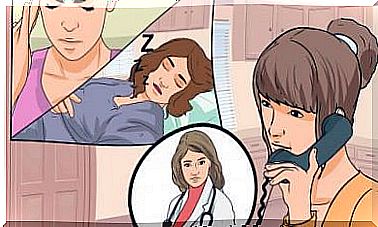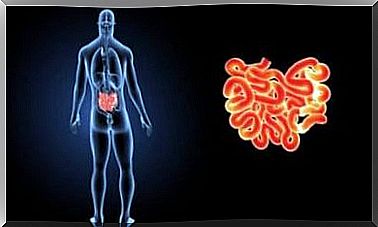Menstrual Irregularities – Do Not Ignore These 6 Symptoms

Menstrual irregularities are a common cause of concern for women of all ages. While irregular cycles are usually not a sign of serious health problems, they can sometimes signal hormone imbalances, nutritional deficiencies, or other problems that require attention.
A typical menstrual cycle is 28 to 35 days depending on a woman’s age, hormones, and habits. So, if the cycle is not typical or there is an abnormality that you are concerned about – it is a good idea to consult your doctor to check if the menstrual irregularities have more serious causes.
Since many women don’t know how to tell the difference between normal and abnormal periods, we’ve compiled a list of 6 symptoms that you shouldn’t take lightly.
1. Menstrual irregularities – no period
Amenorrhea has its Latin name – amenorrhea . Amenorrhea is defined as a situation where a woman of childbearing age does not have a period for more than three cycles, and it is not caused by pregnancy.

Amenorrhea is common in women who:
- They train sport professionally,
- They dance professionally,
- They are on a low calorie diet
- They suffer from anorexia.
2. Blood clots
Small blood clots are perfectly normal during menstruation. However, if the clots are not accompanied by normal bleeding, it is important to see your doctor. It is not normal to have your menstrual blood made up of clots only. Only in the first few days after giving birth should you worry about large blood clots.
3. Long and heavy menstrual bleeding
Menorrhagia is the medical term for profuse bleeding. It is a common ailment and most women experience it at least once in their lifetime. However, you should be concerned if heavy bleeding occurs every cycle and lasts longer than 7 days.

We can talk about heavy menstrual bleeding when you have to change tampons or pads very often, which is not only inconvenient, but also involves spending more money. Extremely severe menorrhagia can even lead to anemia from excessive blood loss.
4. Painful menstruation
Menstruation is often accompanied by painful menstrual cramps in the lower abdomen, which can sometimes also affect the lower back. However, when the pain is extremely severe and it is difficult for you to function normally, you should consult your doctor.

- This condition is known in the medical world as dysmenorrhea and can be debilitating to the body.
- While sometimes painful periods can be caused by problems with the uterus, in many cases it is caused by the increased production of a hormone called prostaglandin.
5. Bleeding between periods
Bleeding between periods – that is, the days when it usually shouldn’t happen – is a clear sign that something is wrong. These types of menstrual irregularities may indicate a hormonal imbalance and, in more complex cases, may indicate a problem with the ovaries or other parts of the reproductive system.
If you experience any unusual bleeding between periods, see your gynecologist as it may mean:
- Polycystic ovary syndrome,
- Muscle,
- Polyps,
- Inflammation of the cervix,
- Pre-cancerous condition or cancer of the ovaries or uterus.
6. Disorders of vital functions
Some women experience a drop in blood pressure in the days leading up to their period. While this is perfectly normal, it is important to take measurements as in some cases the imbalance can be significant and dangerous.
It is best to consult your doctor about this symptom, especially if you suffer from symptoms such as:
- Excessive sweating
- Breathing difficulties
- Tachycardia (fast heart beat)
- Dizziness
- Dizziness and fatigue
When should you consult a doctor about menstrual irregularities?
In conclusion: if you have noticed any of these abnormalities, consult your doctor or gynecologist when:
- Your menstrual bleeding is very heavy.
- You haven’t had your period for a long time.
- Your menstrual blood is thick or smells bad.
- You have severe menstrual cramps and have a fever.
- There are too many clots in your blood.
- Your period is late.
- You experience extreme fatigue during your period.









